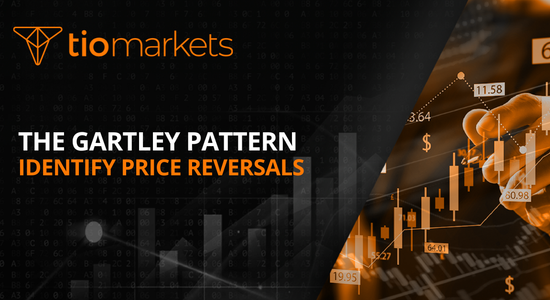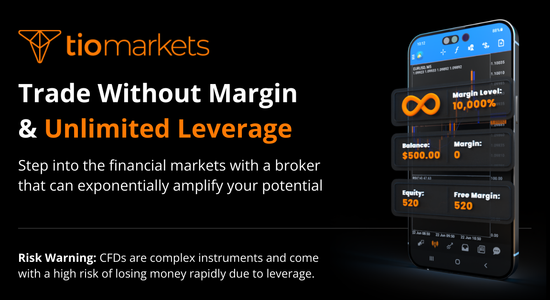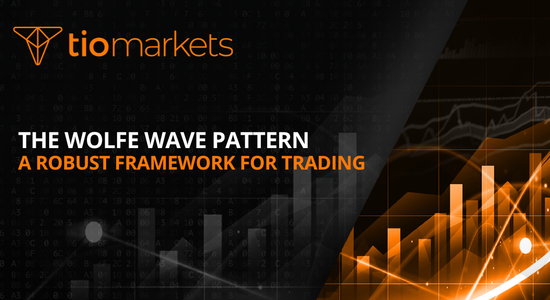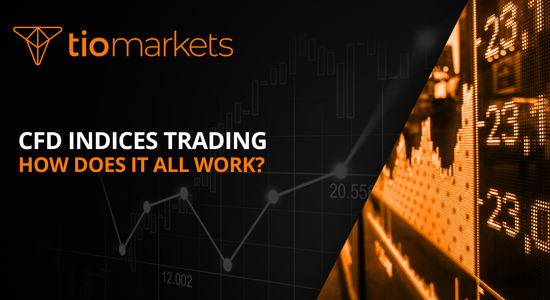Forex Trading: The Concise Guide For beginners To Get Started
BY Chris Andreou
|settembre 15, 2022It’s the largest market in the world and a driver of the global economy. Without it, trade worldwide would come to a stop.
That’s the power of the forex market, a global market with a trading volume in the trillions.
Maybe you’ve heard of forex before, but you’re unfamiliar with what exactly it is or why it matters. You may have even considered investing in forex, but weren’t sure where to start.
So what is forex trading?
We will tell you all about forex trading, help you decide if it’s right for you, and get you started with your investing strategy. Keep reading for our ultimate guide to forex.
What Is Forex?
What is forex? In short, it’s an abbreviation of the words foreign and exchange. Forex is sometimes also abbreviated to FX for short.
Foreign exchange is the process of changing from one currency to another currency. If you’ve ever travelled to another country, you may have exchanged your native currency for the local currency. Forex trading is essentially that – minus the travel.
The forex market is decentralized, which means it does not have one singular owner or location. That allows forex trading to take place around the world, on a 24-hour basis during weekdays.
So when trading ends in one region, it begins in another. Due to the way global time zones work, there is little downtime for forex trading.
This market uptime is one of the many appeals of forex trading.
A Brief History of Forex
The concept of forex trading isn’t new; it’s been around in some form for centuries. Merchants have always traded and bartered goods and currencies for other goods.
However, the modern forex market as we know it is more recent. Post-World War II, the Bretton Woods System was established. This set the exchange rate of the U.S. dollar against gold.
Other currencies were then pegged against the U.S. dollar. This briefly stabilized the world economy, but as different nations and their economies developed, the system soon become obsolete.
Eventually, U.S. President Richard Nixon ended the Bretton Woods Accord in 1971 with his New Economic Policy. This resulted in a free-floating currency system, which allows exchange rates to fluctuate due to market forces. This policy and others were called the “Nixon Shock.”
Soon more and more countries were allowing their currencies to float, effectively creating the modern forex market.
The Pros and Cons of Forex Trading
So why is forex trading popular?
The around-the-clock uptime of the forex market is one of its greatest appeals. No matter who you are or where in the world you are, forex trading is possible.
The decentralization of forex markets is another appeal. Since there are multiple forex markets, that reduces the risk of potential manipulation via insider information.
Forex trading is also extremely accessible, even for beginners. Technology has only increased this accessibility, allowing for easy forex trading using websites and apps.
The forex market is the largest market in the world, with massive daily trading. There are dozens of potential currency pairs you can buy and sell.
You also don’t need a massive investment to get started with forex trading. You can get real experience trading forex and get started with only $100. This is a great way to get started with minimal risk.
However, that’s not to say that forex trading is completely without risk, and that’s a definite negative of forex trading. This of course can be mitigated with knowledge and experience.
While extremely liquid, forex trades can be very volatile. The decentralized nature of forex means that there is less accountability and regulation than other financial markets.
Therefore, trading forex requires some knowledge not only of forex but of economic fundamentals, the global economy, and other factors. Successful forex trading requires a look at the bigger picture.
Forex markets also aren’t attractive to every investor. Since they don’t provide dividend payments, they don’t provide a regular source of income.
Currency Pairs and Currency Types
Forex trading works via currency pairs. Currency pairs fall into 3 types:
- Major pairs
- Minor pairs
- Exotic pairs
Currency pairs list two currencies. The first is the base currency, which is the currency you want to buy. The second currency is the quote currency, which is the currency you will sell in order to buy the base currency.
For example, take the currency pair EUR/USD. The base currency is the Euro and the quote currency is the U.S. dollar. So with this currency pair, you would be selling your U.S. dollars to buy Euros.
The EUR/USD is an example of a major pair. Major pairs are the most heavily traded currencies in the world. Along with the EUR/USD, other major currency pairs include USD/JPY, GBP/USD, USD/CHF.
Major pairs always feature the U.S. dollar. Paired with the USD are other major global currencies.
Minor currency pairs are currency pairs that exclude the U.S. dollar. Examples of minor currency pairs include EUR/GBP and GBP/JPY. Minor currency pairs have a wider spread than major currency pairs.
Finally, there are exotic currency pairs. Exotic currency pairs are not as liquid as other pairs. They also have wider spreads.
Exotic currency pairs include the currencies of emerging markets. There is no one definition for what is considered an emerging market. Instead, several factors are taken into consideration, such as a country’s GDP (gross domestic product) and its exports.
Exotic pairs include only one major currency. Examples of exotic pairs include USD/MXN, USD/THB, and EUR/CZK.
While not as stable as major or minor pairs, exotic currency pairs offer the chance of higher profit.
Types of Forex Trades
There are 3 main trading ways for forex:
- Spot trades
- Forward trades
- Futures trades
The most popular of these are spot trades. Spot trades are instant orders, which mean you buy at the current available price and take immediate ownership. Spot trades are easy and quick, which makes them perfect for forex markets.
Forward and future trades work differently, with buying and selling agreed upon in the future. Forward trades are trades where you agree to pay the price for a currency at a specific time in the future. Future trades are trades where you buy now, with an agreed sell date in the future.
Factors That Can Influence Forex Markets
A key factor of influence in forex markets is the international trade and the balance of trade between countries. Supply and demand play a huge role.
Balance of trade refers to the difference between the goods a country imports and its exports. A country that exports more goods than it imports has a trade surplus. If the reverse is true, it has a trade deficit.
A country that exports goods that are high in demand usually sees its currency appreciate.
A nation’s inflation rate can also influence forex prices. As inflation rises, a country’s currency is devalued. If a country’s inflation rate is low, its currency is expected to appreciate in value over time.
A key aspect of successful forex trading is monitoring the news. Major political events can greatly influence the price of a currency. This could be something as ordinary as an election, or something more extreme such as political unrest.
One major example is Brexit. Since the 2016 Brexit vote, the British pound has lost some of its value. This was because of the political uncertainty of the Brexit vote, combined with trade frictions with other countries.
Economic and employment reports can also play a factor. A recent strong employment report pushed the U.S. dollar higher.
Overall, there’s no one factor that influences the price of a currency. The total economic outlook of a country will influence a currency’s value.
Common Forex Terminology
There are a few common forex terms you should be familiar with prior to beginning your forex trading.
Here are some common forex terms:
- Ask – the price you buy a currency pair at; also called an offer
- Bid – the price you are willing to sell a currency pair at
- Leverage – using borrowed capital to trade
- Margin – the money set aside in an account as collateral for a trade
- Spread – the difference between the sell and buy price for a currency pair
- Lot size – standardized sizes in which currencies are traded
- Central bank – government organization that manages the policy of a country (i.e. the Federal Reserve in the U.S.)
- Commission – a fixed fee charged for a transaction
- Broker – an intermediary that traders go through for forex transactions
- Inflation – an increase in the cost of services and goods in an economy
- Foreign exchange volatility – a measure of how much the prices can fluctuate in a market
- Base currency – the first listed currency in a currency pair
- Quote currency – the second listed currency in a currency pair
There are other forex and economic terms you may want to eventually learn, but understanding these basic terms will help you get started.
Frequently Asked Questions (FAQs) About Forex
Still got questions? Here are some commonly asked questions about forex trading.
Are the Forex Markets Regulated?
Some countries do regulate forex markets and can provide some protection to investors. In the U.S. the Commodity Futures Trading Commission (CFTC) and National Futures Association (NFA) regulate forex trading.
Other institutions that regulate forex trading are the FCA (Financial Conduct Authority) in the U.K. and CySEC (Cyprus Securities & Exchange Commission). Which is based in Cyprus and can passport to European Union member states.
Why Is Forex Trading Popular?
Forex trading can earn you additional income, assuming you are aware of the risks and have some knowledge about the market. The forex market allows for nearly non-stop trading. Many forex brokers now have mobile apps to allow for trading, along with their websites.
For many traders, the benefits of forex trading far outweigh the negatives.
Is Forex a Get-Rich-Quick Scheme?
Forex is far from a get-rich-quick or get-wealthy overnight scheme. Trading currencies takes patience and is not for the impulsive. Successful forex traders focus on larger trends and don’t fret over daily fluctuations.
Sure forex can be profitable, but be wary of anyone who promises overnight success.
What if I Don’t Have a Background in Finance?
You don’t need prior experience in trading or a degree in economics to trade forex. If you’re looking for more insight, you can sign up for market analysis news from Trading Central. You can access your market insights from the secure online portal, the TIOsignals trading app, or via email.
What Are Trading Platforms and Why Do I Need One?
In order to trade forex, you need to download a trading platform. Two of the most popular ones are Metatrader 4 and Metatrader 5. These platforms allow you to trade from any device, including mobile devices.
Metatrader 5 is the newest version, which offers some additional features that are not in the previous version. These features include better analysis tools, as well as automatic trading.
However, either trading platform will allow you to securely buy and sell currency.
Check out our comparison between MT5 and MT5. Our guide will help you decide which platform is right for you.
Ready to Start Trading Forex?
By now you should know all about forex trading and if it’s right for you. Forex trading does require some knowledge to get started, but it doesn’t have to be confusing. Let us teach you how to trade forex.
While it does require an investment, getting started with forex can be affordable and accessible, especially with around-the-clock trading and mobile apps.
At TIOmarkets, we make understanding and getting simple.
Register for an account today and begin participating in the world’s largest and most liquid market.
Risk disclaimer: CFDs are complex instruments and come with a high risk of losing money rapidly due to leverage. You should consider whether you understand how CFDs work and whether you can afford to take the high risk of losing your money. Never deposit more than you are prepared to lose. Professional client’s losses can exceed their deposit. Please see our risk warning policy and seek independent professional advice if you do not fully understand. This information is not directed or intended for distribution to or use by residents of certain countries/jurisdictions including, but not limited to, USA & OFAC. The Company holds the right to alter the aforementioned list of countries at its own discretion.

Experienced independent trader
Related Posts
Trade responsibly: CFDs are complex instruments and come with a high risk of losing all your invested capital due to leverage.



